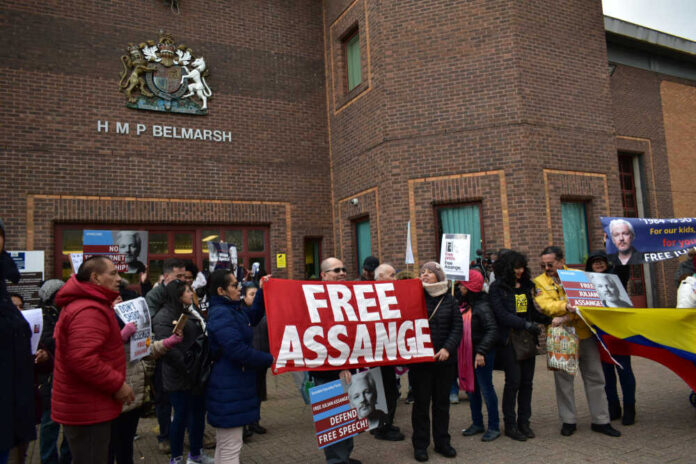Julian Assange will not be extradited to the United States unless top U.S. officials assure the British High Court that he won’t face the death penalty and will receive full protections under the First Amendment.
That announcement was made on Tuesday in regards to the U.S. request to have the founder of Wikileaks extradited to face 17 criminal charges under the Espionage Act.
He’s been charged with receiving, possessing and communicating classified information to the public, and also conspiracy to commit computer intrusion. If he were to be extradited to the U.S., he would be tried in a court in Alexandria, Virginia, and would face as many as 175 years in a maximum security prison.
On Tuesday, British Judge Victoria Sharp said:
“If assurances are not given, then we will grant leave to appeal without a further hearing. If assurances are given, then we will give the parties an opportunity to make further submissions before we make a final decision on the application for leave to appeal.”
Sharp and Judge Jeremy Johnson further said the U.S. has to give Assange, who is an Australian national who’s 52 years old, “the same First Amendment protections as a United States citizen and that the death penalty is not imposed.”
Following the ruling, the U.S. now has three weeks to prove the assurances to address the grounds of the British High Court. If the U.S. declines to do so, then the court plans to grant Assange a right to appeal extradition on those grounds.
If the U.S. does give assurances, then a hearing will be held May 20 to determine if they’re sufficient enough, and to finally rule on whether Assange can appeal.
Should the British court rule that Assange can be extradited, his only remaining lifeline would be to appeal to the European Court of Human Rights.
Assange lodged nine appeals in total to the British High Court, though six of them were rejected.
Assange has been held at Belmarsh Prison, a high-security facility in London, since April of 2019, when he was removed from the Ecuadorian Embassy for breaching the conditions of his bail. He was seeking asylum at the assembly since back in 2012 so he wouldn’t be sent to Sweden to face allegations that he raped two women.
Sweden wouldn’t provide him assurances at the time that they wouldn’t extradite him to the U.S. The charges and the investigation in the case eventually were dropped.
Recently, Assange’s brother, Gabriel Shipton, told Fox News Digital:
“Julian still remains imprisoned in very harsh conditions with rapidly deteriorating physical and mental health. Today’s announcement represents the extension of this long and arduous 13-year process to have Julian released and returned home to Australia, and we are very concerned at the prospect of him being extradited to the U.S.”
The charges against Assange were brought by the Department of Justice under the Trump administration over the 2010 publication of leaked cables by Chelsea Manning, then an intelligence analyst with the U.S. Army.
The information detailed war crimes that were allegedly committed by the United STates in Cuba, Afghanistan and Iraq, and also instances of CIA agents engaging in rendition and torture.


















